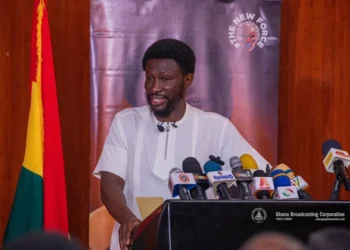The Ministry of Education (MoE) has announced the payment of GH¢9.5 million to Primetime Limited, the organisers of the National Science and Mathematics Quiz (NSMQ), to settle outstanding arrears from 2023 to date.
While the NSMQ is a popular academic competition, this payment raises important questions about how public funds are being used and whether this approach truly supports science education in Ghana.
It is important to clarify whether the MoE or the Ghana Education Service (GES) officially contracted Primetime Limited to organise the NSMQ on behalf of public schools.
If so, then the terms of that agreement should be made public.
We must also ask why such a huge amount of money is being paid to a private company for organising a single competition. Using government funds to sponsor a private company that gains publicity and commercial benefits from NSMQ needs to be carefully reviewed.
Many companies also sponsor the NSMQ. It is unclear how much they contribute and where those sponsorship funds go.
Transparency is needed to understand how all these resources are managed.
Another concern is why the money was paid directly to Primetime Limited and not to the Conference of Heads of Assisted Secondary Schools (CHASS), which represents the schools that participate in the competition.
Schools need support for training, preparation and logistics. Shouldn’t they receive funding directly to help their students prepare?
We must also ask what Primetime Limited contributes beyond organising and broadcasting the event. If most of the funding comes from the government and sponsors, what role does the company play in improving science education?
It is also important to ask whether the NSMQ provides enough value to justify such a large investment of taxpayer money.
Many science laboratories in our Senior High Schools lack basic equipment.
Wouldn’t it be better to use this money to improve those labs so students can learn through hands-on experience?
Instead of spending millions on a competition, we could invest in building and resourcing STEM Education Centres across the country.
These centres would help students learn practical science and develop real skills.
We should also make sure that schools in less privileged areas are supported so they can take part in competitions like NSMQ fairly if the competition is worth staying.
Has there been any study to show how NSMQ affects students’ interest in science or their future careers? If not, we need to assess its impact.
We should also explore other important ways to promote science education, such as school-led competitions that are more inclusive and cost-effective.
Finally, we must ask what other important education projects were delayed or cancelled to make room for this GH¢9.5 million payment.
Is this the best use of our limited resources?
The NSMQ is a respected academic event, but it should not be seen as the main solution to improving science education in Ghana.
The current approach encourages memorisation rather than deep understanding.
Our students need more than just quiz preparation; they need real science skills that will help them in life and in their careers.
The MoE and the GES must look ahead and invest in practical science education; thus, focus on Practical Science Education.
This means building better labs, training more science teachers, and creating STEM Centres that give students hands-on experience.
Let’s use our money wisely as a country to build a stronger future for science education in Ghana.










Discussion about this post